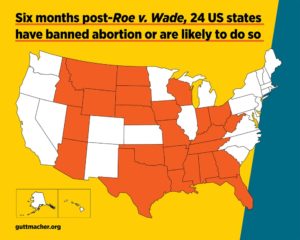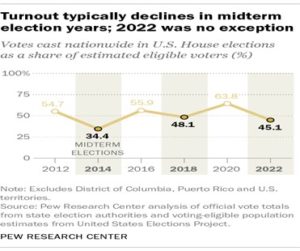
Carole Levine March 25, 2023
There is no shortage of issues and political battles where one might engage these days. In fact, it is overwhelming to try to figure out just where to spend one’s time and energy. We are living in a world, a nation, states, and communities where our rights and freedoms, many of which we have taken for granted, are now threatened or even gone. Determining just where and how to best put one’s skills and energy to secure what is threatened or regain what has been taken from us, is daunting. One of my favorite photos is of a dog with the covers pulled over its head…that’s how I am feeling and, I suspect, I am not alone. It may be easier to ignore what is happening than to confront it.
Have we become immune to social ills? Are those of us with privilege able to turn our backs on those who have less in order to protect what we have? Is it too hard to work to change systems that are no longer functioning for the greater good? And are the personal costs of needed change more expensive in both time and money than we are willing to sacrifice? There are so many questions with answers that I fear will not make people happy or hopeful.
A wise friend once said to me, “Change is hard… You go first!” And he was so very correct. We cannot ask others to do what we are not willing to take on ourselves. We are, however, living in a time and a place that has a very short attention span when it comes to confronting our nation’s social illnesses. We have become indifferent to our current national tragedies of poverty, hunger, racism, homelessness and inequity. And we seem to reject efforts at any national conversation or plans that might get to the root causes of these issues or prevent the next national crisis. “I don’t think we’ve cried enough yet,” says the Rev. William Barber II, the prominent civil rights leader who resurrected MLK’s Poor People’s Campaign. “Sometimes a nation needs to be made to cry if it’s going to change. The media flips the pages. It’s almost like we treat bad public policy like it’s a commercial.”
But even our tears are not moving us to the actions that will make sustainable changes. We watched with great horror as the US Supreme Court overturned almost 50 years of precedent and women’s right to bodily autonomy in the Dobbs v. Jacksons Women’s Health Organization decision. Many of us saw this coming as the composition of the Supreme Court changed, but I don’t think many of us were really prepared to deal with what losing the right to abortion really meant. And now we are watching as many states see the Dobbs decision as the Supreme Court opening the door for them to take things even further. In the short time since that decision, 23 state legislatures have moved quickly to ban abortion, or limit access to medication abortion (the most common and safe method) and make it difficult for women and their doctors to access abortion in a medical emergency, even when it is the most appropriate intervention. Control over one’s health care was just one area where our attention and activism are needed. But on this critical issue, I often hear my friends and colleagues say that it is just “too hard” to deal with their state legislatures or that their one vote will not change anything.

I work on voting and voting rights, and I have been frustrated with the decline in voter turnout since the 2020 election. For me, there is nothing more sacred than the right to vote. I do not want others making decisions that I should have a say in. If I don’t vote, I get what “they” want.. If I do vote, at least I voiced my opinion.

But more and more, even from my own kids, I hear a sense of frustration with this process. They vote, but they do not feel as though things change, even when “their” candidates are elected. They wonder if it is worth the effort. Yet, when I consider the alternative, I am convinced that voting is better. One of my heroes, the late Congressman John Lewis, a civil rights leader who cherished voting rights above all else said in an interview in 2019, “The vote is precious. It is almost sacred. It is the most powerful non-violent tool we have in a democracy.” Lewis also talked about getting into “good trouble”! Perhaps more of us need to crawl out from under the covers, and do just that. Engaging with voter registration and “Get Out the Vote” campaigns is both good work and sometimes “good trouble”! You can’t tell those you register or get to the polls who to vote for, but you can help them to care about the issues and to see how their votes might make a difference
And then there is work on changing bad laws or creating good ones. This is definitely not for the faint of heart! But there are ways to be involved that are as simple as a phone call to a legislator, or an email or a text. You don’t have to be the expert (others can supply you with the right wording). You just have to be ready to pick up your phone or launch a text or email. And aids who work with our legislators tell us that these things make a difference! They count the number of calls and texts and whether they are pro or con. Your voice gets heard and you don’t even have to leave your house. But if you do leave your home and show up at a legislator’s office and meet with them in person to make your case on an issue, you will definitely have an impact. You don’t have to do this alone. Take some friends who live in the district and feel as you do. There is strength in numbers. And talking to a legislative aid is OK. You can’t always meet with your elected official (they are busy… at least you hope they are busy!). And even if you disagree, send a thank-you email or text (noting that you did not agree) to say how much you appreciated that they listened to your position and that so many of their constituents align with your position. Good trouble… Good work!
Don’t get me started on book banning and censorship or vouchers or racism in school curriculum. In so many ways, all of these issues come back to who we elect to public office and who we put in decision-making positions. From those who sit on our school and library boards, to our city councils and mayors to those who represent us in state and federal government, each of these persons is responsible to us. And we should hold them accountable. It starts with knowing who they are and then making sure that they know who we are. And that does not happen when we sit things, like elections, out. It happens when we find groups and organizations that work on issues we care about and we join in. It happens when we speak out and voice our opinions and feelings. It happens when we stand with others who may not have the same privilege we do. It happens when we work hard and don’t give up, even when we don’t always win. It happens when we stop pulling the covers over our head and ignoring things that seem overwhelming, threatening, or just too hard to change.
I have been at this for my entire life (or at least since I was five – my first memory of standing up for something I knew was unjust) and I cannot remember a time like this when so many of our rights seem eroding. With each step forward that we celebrate, I am noting 2 steps back. I am angry. I am frustrated and I am tired. But I am not about to throw in the towel and concede to those who would take rights away from my grandchildren! This is not the time for saying that the fight is too big or too hard or too frustrating. This is the time for looking for colleagues and collaborators and new strategies. This is a time for moving forward and taking others with us. Let’s vote. Let’s lobby. Let’s protest. And let’s continue to make a difference. It has in the past, and I truly believe it will in the future.
Change IS hard. And someone has to go first. It may as well be us. We are needed more than ever right now. So let’s get into some good trouble…
